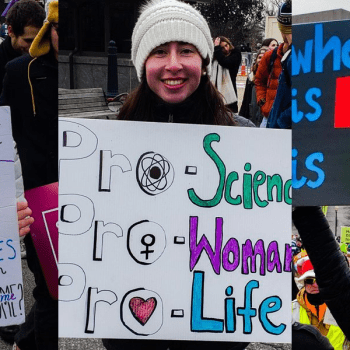
This week, the CBS News Program, 60 Minutes featured a report on George Church, a cutting edge genetic scientist. Some of the things he mentioned seemed good but others seemed to be eugenic and only obtainable by unethical means. Let me cite that section of the report and give some reflection.
60 Minutes on Eugenic Dating
Here’s the important dialogue (the article seems to be a transcript from the show):
Church is a role model for the next generation. He has co-founded more than 35 startups. Recently, investors put $100 million into the pig organ work. Another Church startup is a dating app that compares DNA and screens out matches that would result in a child with an inherited disease.
George Church: You wouldn’t find out who you’re not compatible with. You’ll just find out who you are compatible with.
Scott Pelley [interviewer]: You’re suggesting that if everyone has their genome sequenced and the correct matches are made, that all of these diseases could be eliminated?
George Church: Right. It’s 7,000 diseases. It’s about 5% of the population. It’s about a trillion dollars a year, worldwide.
Church sees one of his own genetic differences as an advantage. Narcolepsy lulls him several times a day. But he wakes, still in the conversation, often, discovering inspiration in his twilight zone.
Scott Pelley: If somebody had sequenced your genome some years ago, you might not have made the grade in some way.
George Church: I mean, that’s true. I would hope that society sees the benefit of diversity not just ancestral diversity, but in our abilities. There’s no perfect person.
Despite imperfection, Church has co-authored 527 scientific papers and holds more than 50 patents. Proof that great minds do not think alike.
Analysis of Eugenic Dating
A little science first. Many damaging genetic disorders are recessive so a child needs to receive a copy of the same allele (genetic variant) from each parent. If these conditions are rare, there are far more carries with one copy than people who express the genetic issue. (For example, about 2% of people – 1 in 50.5 – are carriers for a genetic condition that only affects 1 in 10,000.) Most of us are probably a carrier for at least one recessive condition: as noted above there are 7,000 different ones. Even if both parents are carriers, only 1/4 children will have the condition (2/4 will be carriers and 1/4 will be neither). Some genetic conditions are dominant but in such a case, the parent with the genetic variant would have the condition so genetic testing would not reveal what wasn’t already known.
An interesting part of the dialogue is when the interviewer asks if “all of these diseases could be eliminated?” Church responds that they can be. However, this is unlikely for two reasons. First, as most of us have at least one recessive allele, we’ll pass that on to half our children and thus it will still be present. If we wanted to eliminate these completely through eugenic dating, it would require all people to use this type of service for a few hundred years. Even then, it is likely that we would never eliminate these recessive alleles unless we restricted the reproduction of those with recessive alleles. Second, the only ways to ensure these recessive alleles were eliminated would be immoral. This could be achieved by selectively aborting babies who had these alleles: either pre-implantation with IVF or after natural conception. It could also be done by sterilizing those with recessive alleles associated with genetic issues. (On top of the immortality of these methods, unless we focused on only one or two alleles – not the 7,000 mentioned – we would end up aborting or sterilizing the majority of the population.)
People have the human right to marry who they want so long as they are able to marry. There are certain obstacles to marriage, but other than already being married, these are few and far between. We can’t tell people not to date because they have a certain genetic allele. The doctor noted that a person will find out who are they compatible with, not incompatible. However, If you and someone else does it and you don’t match, you would be aware you are incompatible.
I find it kind of ironic that such a doctor has narcolepsy and admits he might have trouble with such a system. He hopes, “society sees the benefit of diversity… in our abilities,” however, making a system like this tends to focus on the negative and not embrace such diversity.
We should be wary of any dating that tries to match people with genes as it likely ends in eugenic dating.
Note: Please support me on Patreon so I can write more like this.
















